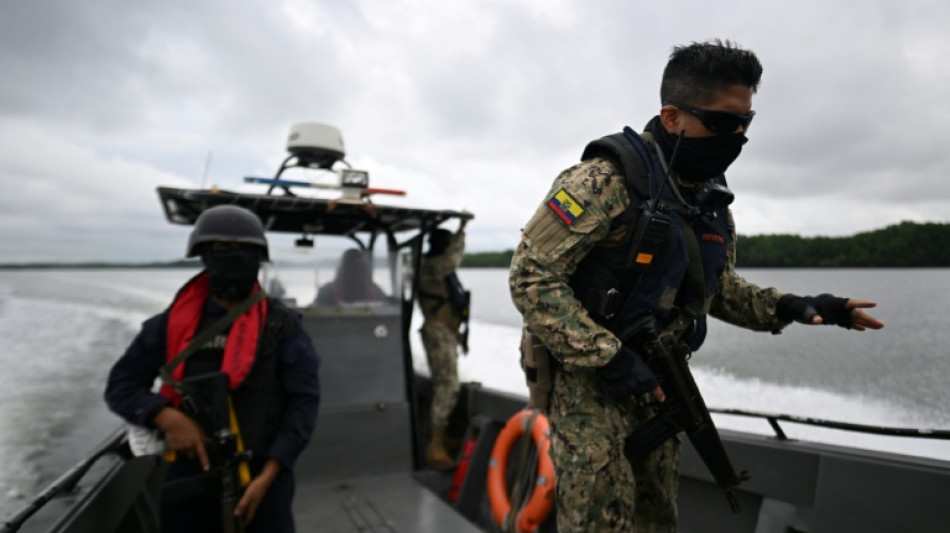
-
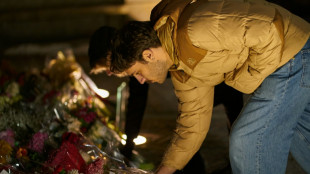 US suspends green card lottery after MIT professor, Brown University killings
US suspends green card lottery after MIT professor, Brown University killings
-
Stocks mixed with focus on central banks, tech
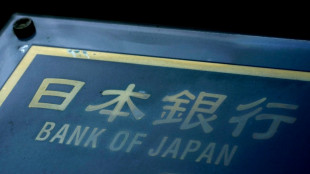
-
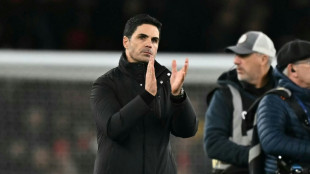 Arsenal in the 'right place' as Arteta marks six years at club
Arsenal in the 'right place' as Arteta marks six years at club
-
Sudan's El-Fasher under the RSF, destroyed and 'full of bodies'
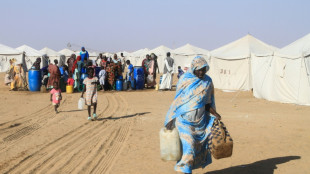
-
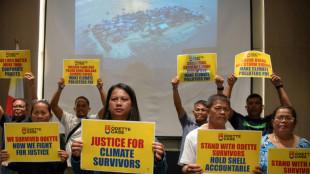 From farms to court, climate-hit communities take on big polluters
From farms to court, climate-hit communities take on big polluters
-
Liverpool have 'moved on' from Salah furore, says upbeat Slot
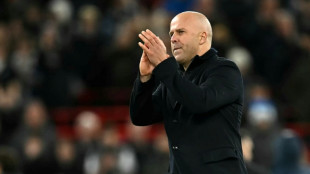
-
 Norway crown princess likely to undergo lung transplant
Norway crown princess likely to undergo lung transplant
-
Iraq negotiates new coalition under US pressure
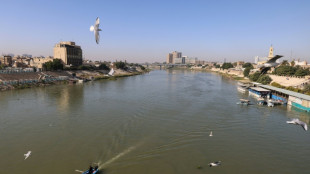
-
 France's budget hits snag in setback for embattled PM
France's budget hits snag in setback for embattled PM
-
Putin hails Ukraine gains, threatens more, in annual press conference
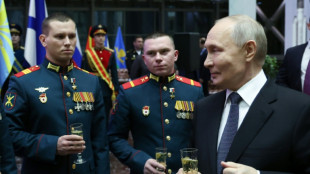
-
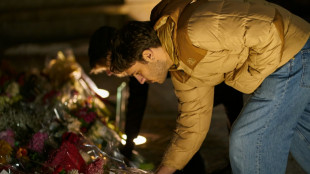 US suspends green card lottery after Brown, MIT professor shootings
US suspends green card lottery after Brown, MIT professor shootings
-
Chelsea's Maresca says Man City link '100 percent' speculation
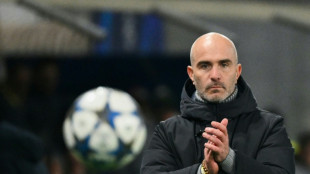
-
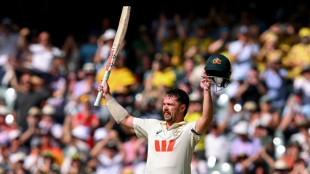 Dominant Head moves into Bradman territory with fourth Adelaide ton
Dominant Head moves into Bradman territory with fourth Adelaide ton
-
Arsenal battle to stay top of Christmas charts
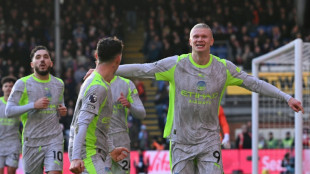
-
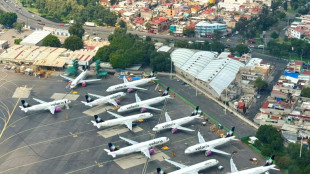 Mexican low-cost airlines Volaris and Viva agree to merger
Mexican low-cost airlines Volaris and Viva agree to merger
-
Border casinos caught in Thailand-Cambodia crossfire

-
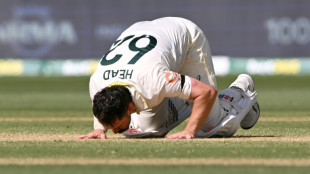 Australia's Head slams unbeaten 142 to crush England's Ashes hopes
Australia's Head slams unbeaten 142 to crush England's Ashes hopes
-
Epstein files due as US confronts long-delayed reckoning

-
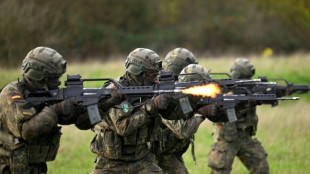 'Not our enemy': Rush to rearm sparks backlash in east Germany
'Not our enemy': Rush to rearm sparks backlash in east Germany
-
West Indies 110-0, trail by 465, after Conway's epic 227 for New Zealand
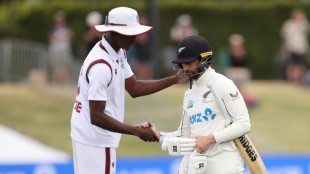
-
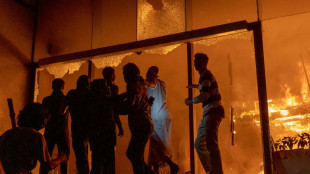 Arsonists target Bangladesh newspapers after student leader's death
Arsonists target Bangladesh newspapers after student leader's death
-
Volatile Oracle shares a proxy for Wall Street's AI jitters
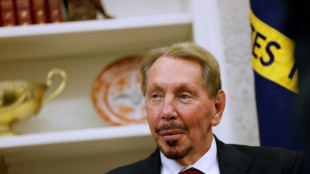
-
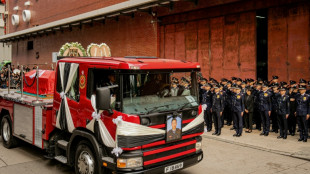 Tears at tribute to firefighter killed in Hong Kong blaze
Tears at tribute to firefighter killed in Hong Kong blaze
-
Seahawks edge Rams in overtime thriller to seize NFC lead
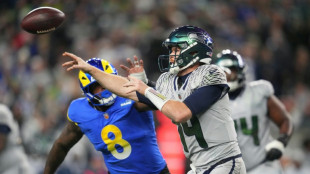
-
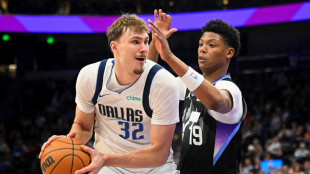 Teenager Flagg leads Mavericks to upset of Pistons
Teenager Flagg leads Mavericks to upset of Pistons
-
Australia's Head fires quickfire 68 as England's Ashes hopes fade
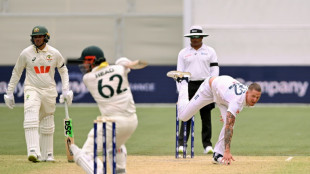
-
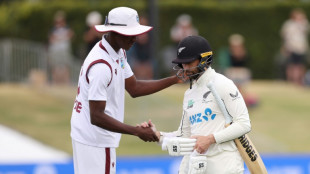 Conway falls for 227 as New Zealand declare at 575-8 in West Indies Test
Conway falls for 227 as New Zealand declare at 575-8 in West Indies Test
-
Japan hikes interest rates to 30-year-high

-
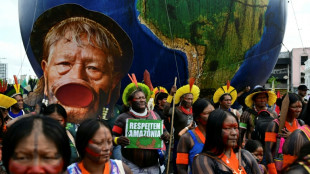 Brazil's top court strikes down law blocking Indigenous land claims
Brazil's top court strikes down law blocking Indigenous land claims
-
Conway falls for 227 as New Zealand pass 500 in West Indies Test
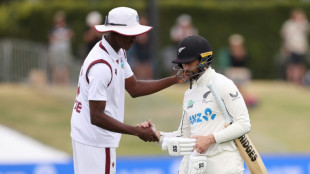
-
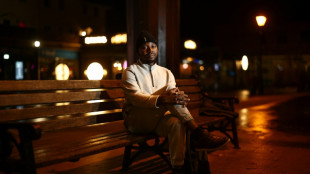 'We are ghosts': Britain's migrant night workers
'We are ghosts': Britain's migrant night workers
-
Asian markets rise as US inflation eases, Micron soothes tech fears
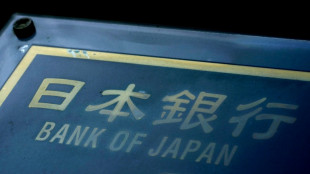
-
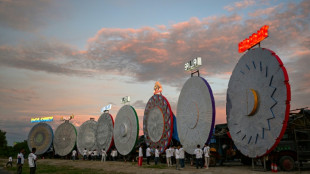 Giant lanterns light up Christmas in Catholic Philippines
Giant lanterns light up Christmas in Catholic Philippines
-
TikTok: key things to know
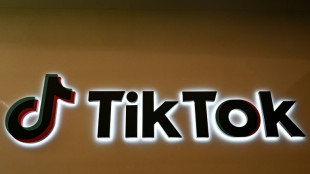
-
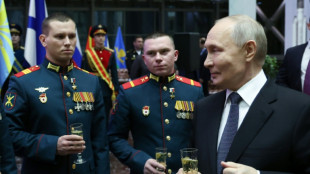 Putin, emboldened by Ukraine gains, to hold annual presser
Putin, emboldened by Ukraine gains, to hold annual presser
-
Deportation fears spur US migrants to entrust guardianship of their children
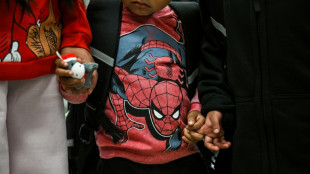
-
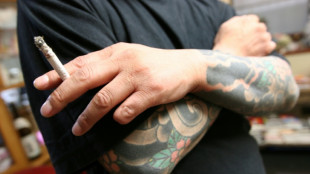 Upstart gangsters shake Japan's yakuza
Upstart gangsters shake Japan's yakuza
-
Trump signs $900 bn defense policy bill into law
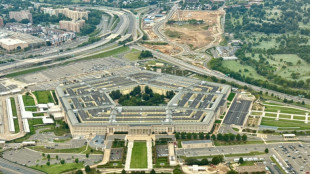
-
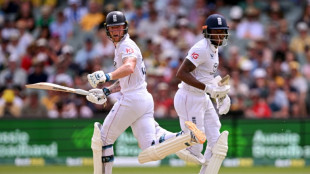 Stokes's 83 gives England hope as Australia lead by 102 in 3rd Test
Stokes's 83 gives England hope as Australia lead by 102 in 3rd Test
-
Go long: the rise and rise of the NFL field goal

-
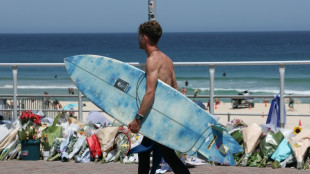 Australia announces gun buyback, day of 'reflection' after Bondi shooting
Australia announces gun buyback, day of 'reflection' after Bondi shooting
-
New Zealand Cricket chief quits after split over new T20 league
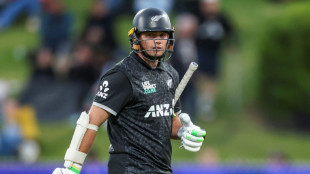
-
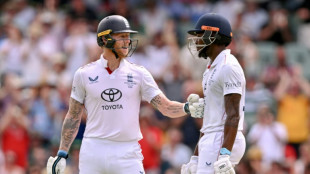 England all out for 286, trail Australia by 85 in 3rd Test
England all out for 286, trail Australia by 85 in 3rd Test
-
Australian announces gun buyback, day of 'reflection' after Bondi shooting
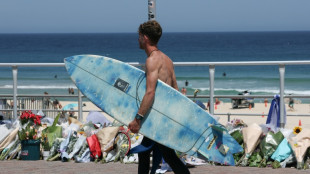
-
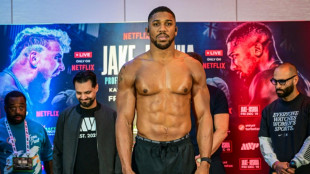 Joshua takes huge weight advantage into Paul fight
Joshua takes huge weight advantage into Paul fight
-
TikTok signs joint venture deal to end US ban threat

-
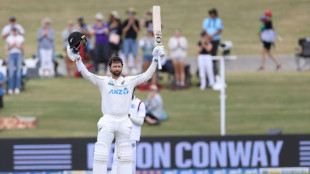 Conway's glorious 200 powers New Zealand to 424-3 against West Indies
Conway's glorious 200 powers New Zealand to 424-3 against West Indies
-
WNBA lockout looms closer after player vote authorizes strike

-
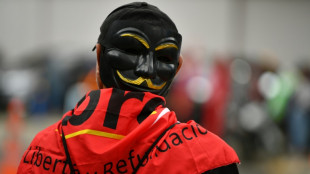 Honduras begins partial vote recount in Trump-dominated election
Honduras begins partial vote recount in Trump-dominated election
-
Nike shares slump as China struggles continue
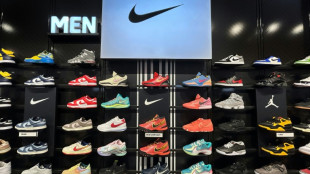

Ecuador's wild west shows limits of Noboa's 'iron fist'
On Ecuador's lawless southwest coast, drug gangs operate with impunity and terrified residents ask if their president's "iron fist" security policies are just words.
In a darkened military command center near the Peruvian border, eight Ecuadoran marines armed with rusting M4 rifles prepare for a patrol.
For their safety, all are heavily masked. Name tags and rank insignia are removed.
They are about to enter cartel country, where the state has no monopoly on the use of force.
Like much of once-tranquil Ecuador, Puerto Bolivar has become a battleground for rival cartels fighting to bring record amounts of cocaine from Colombia and Peru to Europe, North America and Asia.
Last year, the marines found about 30 bodies in waters near the port, some decapitated, others otherwise mutilated.
A recent bomb targeting a local gang leader killed two people and levelled several homes.
"There is no security," said one resident who asked not to be named for fear of being killed. "The country has been completely abandoned."
The marines tear away from the quay in two boats, racing through a mud-brown maze of canals and estuaries flanked by mangroves, docks and fishing villages.
Most of their four-hour patrol is unremarkable. They search a few fishing boats and find nothing.
But when they enter Huayala -- an estuary stuffed with ramshackle docks and cinder block buildings -- the unit snaps into position, their rifles cocked and raised.
The marines nervously scan the jumble of boats and buildings, where hundreds of eyes peer back from the shadows.
"It's not a good idea to stay here long," confides one of the marines. "Someone could take a shot."
- Paying for 'vaccines' -
Puerto Bolivar is one of the world's most important banana-exporting ports and a key seafood trading post -- strategically vital for Ecuador's economy.
But today, the container cranes appear idle and the deepwater docks are mostly empty.
The boom businesses are extortion, kidnapping, assassination, illegal fishing, money laundering and cocaine trafficking.
Most locals are too scared to talk. "They might go as far as killing me or my family" said one old man, before his wife pulled him away.
But a handful of residents are angry enough to speak out and risk their lives.
One of them is a local fisherman who agreed to speak to AFP on condition of anonymity.
He arrives at a secure meeting point wearing a facemask and cap and determined to tell the world what is happening to his community, and to his country.
He admits paying a "vacuna" or vaccine, to the gangs -- a monthly fee, plus 20 percent of his catch in return for his safety.
"If we ignore them, they sink our boats or steal our engines. Some fishermen have simply disappeared," he said.
Others happily work for the cartels because they pay more.
The fisherman described the myriad ways the gangs make money, from gold mining to smuggling fuel into Peru.
Some schemes are simple -- banana shipments loaded with cocaine and sent to Europe. Others are complex, involving the purchase of non-existent fish to launder money.
The names of the gangs and their leaders are well known to everyone -- Los Lobos (The Wolves), Los Lobos Box and Los Choneros.
"Some of them I have known since they were kids running around without shoes," said the fisherman.
Criminal influence is out in the open.
One of the area's numerous brothels is called "Napoles," in homage to the notorious Colombian drug lord Pablo Escobar's opulent estate of the same name.
The military admits that ranking figures in Mexico's Jalisco New Generation Cartel are deeply engrained in the area. They visit and do business out in the open.
- 'The judges don't judge' -
President Daniel Noboa has responded to Ecuador's security crisis by declaring a state of emergency, making high-profile arrests and sending the military onto the streets and into gang-controlled prisons.
But in Puerto Bolivar locals see little impact.
Noboa lost the province by five points to his leftist rival in Sunday's election and may not fare any better in April's second-round runoff.
Evan Ellis, a Latin America security expert and former State Department advisor, said Noboa's deployments have "caused (gangs) to 'lay low' to some degree".
But they "did not address the fundamental problems of the flow of drugs through the country and the associated battles for control over routes."
The deployments may also have left the military shorthanded and in a difficult position.
Navy Captain Carlos Carrera admits "the Armed Forces are not designed to combat organized crime or to directly provide internal security. We can help the police."
But according to the fisherman from Puerto Bolivar, the police don't always police, "the prosecutors don't prosecute and the judges don't judge."
One official recalled a woman who approached the police for help escaping her gang member partner.
"There is no one in charge here," said one resident of Pitahaya, a nearby fishing village.
"We live in fear that we will lose everything over some little thing".
P.Anderson--BTB
